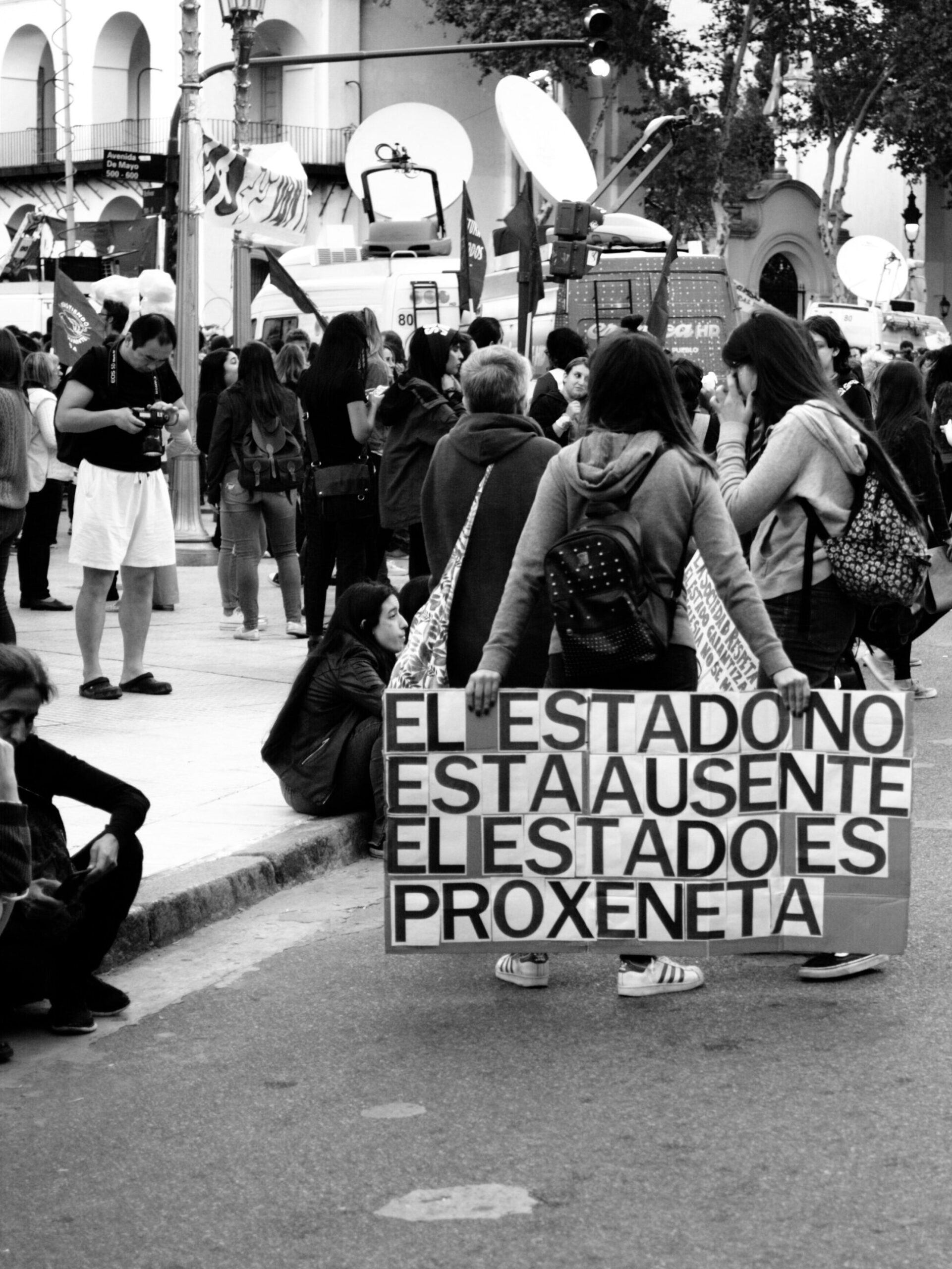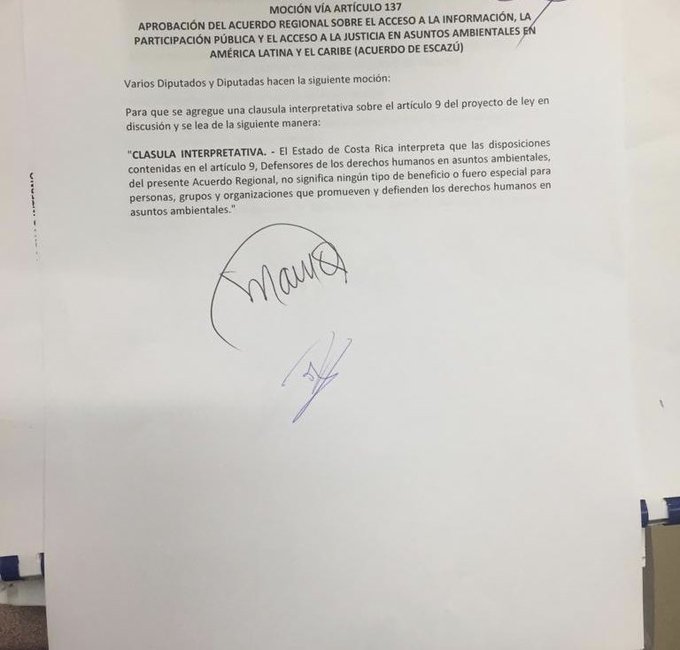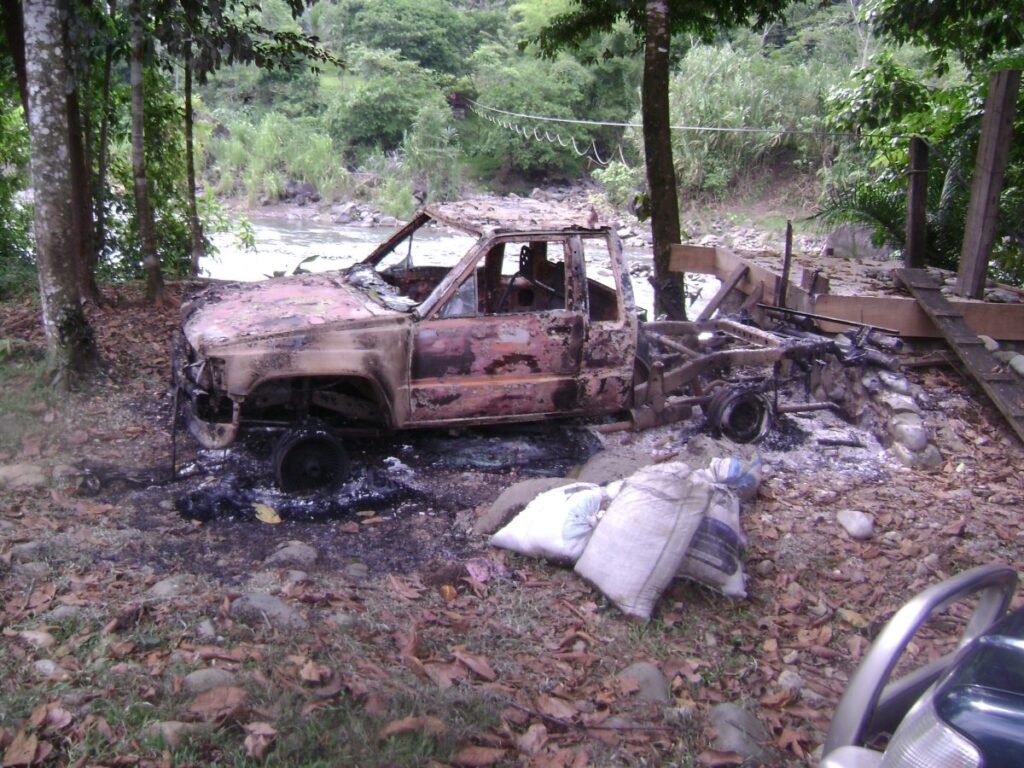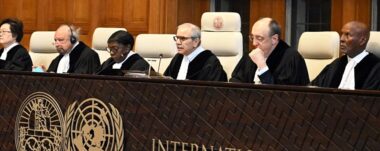Escazú Agreement: notes on the filing by the Legislative Assembly

Escazú Agreement: notes on the filing by the Legislative Assembly of this emblematic regional treaty adopted in Costa Rica in 2018 under its leadership
On February 1st, the Legislative Assembly of Costa Rica decided not to keep the file corresponding to the approval process of the Escazú Agreement, which had been brought to its attention since February 2019, in the legislative stream (see, among many newswires, this one from the EFE news agency replicated in Swissinfo and this very complete article whose integral reading is recommended published in the digital media Delfino.cr).
Upon expiration of the four-year term, this file will be definitively archived, unless the Costa Rican Executive Branch decides to present it again in the legislative stream: it is estimated that this possibility will not occur with the current authorities that took office in May 2022.
As will be recalled, the Escazú Agreement is an international treaty adopted under the auspices of the United Nations Economic Commission for Latin America and the Caribbean (ECLAC) in March 2018 in Costa Rica by 33 delegations from Latin America and the Caribbean. The long negotiation process initiated in 2013 was co-led by Chile and Costa Rica. The text finally adopted in Costa Rica on March 4, 2018 consists of 26 articles (the text is available at this link): its objective is to translate into legal terms Principle 10 of the 1992 Rio Declaration on informed public participation in environmental matters.
In March 2022, an important meeting in the Costa Rican capital hosted by ECLAC with the main international development cooperation banks (World Bank, CABEI, IDB, EIB) and representatives of the Organization for Economic Cooperation and Development (OECD) reaffirmed that the Escazu Agreement is perfectly in line with the general guidelines on transparency and accountability promoted by these international entities in investment matters (see official press release). In this regard, Escazu has been described by numerous specialists as a modern instrument in terms of environmental management and governance, from various perspectives and disciplines (Note 1).
In April 2022, ECLAC published an implementation guide (almost 200 pages long) to the Escazú Agreement: it is a very valuable text, and highly recommended reading for social organizations, as well as for decision-makers and public entities, and interested members of the general public.

In November 2022, the first forum on human rights defenders in environmental issues met in the Ecuadorian capital (see program and videos of this important activity).
These and other activities reflect the strong impetus that ECLAC and the States Parties gave to the Escazú Agreement in 2022, in order to achieve its prompt implementation and correct application.
An unusual event
It should be noted that it was without Costa Rica that the Escazu Agreement officially entered into force on April 22, 2021, with 12 States Parties, being Argentina and Mexico the States that made it possible to reach the necessary number for its entry into force: the current status of signatures and ratifications is available at this official United Nations link, with, in addition to the 12 aforementioned States, an additional instrument of ratification (Chile) deposited in June 2022, and another still pending (Colombia) after approval by both chambers of its Legislative Power and sanction by the Colombian President in November 2022 (see our note in this regard).
In the case of Costa Rica, it is the first time that such an absence has been observed on the part of a State that is co-leading the negotiation of an international instrument and that gives the name of one of its cantons to the approved agreement: Costa Rica is doubly absent, since it was not among the first States to ratify and does not appear in the group of States that give it legal life by reaching the minimum number of ratifications required for its entry into force (11 States required, in the case of the Escazú Agreement).
This is a totally anomalous and unusual situation, and above all, unknown to date in international diplomatic practice. Both inside and outside Costa Rica, the inconsistency with the international image projected is absolute.
Domestically, the incongruence of several political parties is more than evident when recalling that in February 2020, this same international instrument was approved in first debate with 44 votes in favor and 0 against (see board with details of voters on February 13, 2020): rarely has such a sudden change of mind of various political groupings been observed in Costa Rica, whose members withdrew in May 2022 from that legislature (2018-2022) without providing any explanation in this regard.
Persistent gaps in the environmental legal system
It is quite wrong to argue that the Escazú Agreement does not add anything new to the existing Costa Rican legal framework, as was heard from the current Costa Rican authorities to justify its non-approval.

Among many examples of legal omissions in Costa Rica that this cutting-edge regional treaty seeks to remedy, the defenselessness of people who defend the environment is a persistent reality. A valuable publication entitled “A memory that turns into a struggle: 30 years of criminalization of the environmental movement in Costa Rica” documents a reality far removed from the image of green and peaceful democracy promoted internationally by the Costa Rican State over the last 30 years. Even a report presented by the United Nations Special Rapporteur on the rights of indigenous peoples in September 2022 expressly recommended Costa Rica to ratify the Escazú Agreement without further ado, given the situation of total vulnerability suffered by leaders of several Costa Rican indigenous communities, two of them having been murdered in less than a year between March 2019 and February 2020 (see our note in this regard).
Another aspect that this international treaty seeks to regulate, such as access to information on environmental matters, is subject to persistent gaps that force Costa Rican citizens and organizations to systematically resort to the courts of justice to obtain information that state entities deny or partially deliver to them. The same recourse to national justice can be observed in the matter of participation of communities potentially affected by a project of a certain magnitude: on this precise point, Chile recently established a mechanism following precisely the guidelines of the Escazú Agreement (see official link of the SEA – Environmental Evaluation Service – in this regard).
The increasing socio-environmental conflicts registered in Costa Rica in recent times, largely caused by the Costa Rican State itself, are evidence of the various shortcomings of the current regulatory framework in environmental matters (and the reiterated reports of the State of the Nation amply document this). On the other hand, international measurements such as the EPI indicator elaborated by two prestigious universities in the United States, confirm the accelerated decline of Costa Rica in its former positions in terms of environmental performance (see for example the article of Semanario Universidad or this article of La República, both from June 2022, on the dizzying decline suffered between 2012 and 2022, which does not seem to be of much interest to political decision makers in Costa Rica).


Regarding other “arguments” circulated as of April 2021, by an influential Costa Rican business chamber (UCCAEP), a first attempt to publicly debate them with specialists did not succeed (see the broadcast Café para Tres of Delfino.cr on April 22, 2021, to which UCCAEP representatives did not want to attend). Two subsequent attempts to hold public debates with UCCAEP representatives also failed (Note 2).
A profound lack of knowledge in Costa Rica about the Escazú Agreement
Despite the fact that this innovative and cutting-edge instrument was adopted in Costa Rica on March 4, 2018, its dissemination has been relatively limited.
The Costa Rican State itself has been negligent in disseminating its content since 2018, and there have been very few initiatives developed from public universities and social entities, with the University of Costa Rica (UCR) being the entity that registers the largest number of talks, lectures, radio broadcasts and publications.
In a recent survey (see document) conducted by the National University (UNA), it can be read (page 21) that:
“However, despite the fact that the Escazú Agreement entered into force on April 22, 2021, and that the country proposed and led the negotiation process, to date it has not been ratified. Therefore, the surveyed population was asked if they had heard about the Agreement, where most of the people surveyed, 92.6%, had not heard about it, while only 7.4% had heard about it”.
This low figure can be partly explained by a rather peculiar strategy of some major media outlets, tending not to open their spaces to a detailed analysis of the content of this international treaty, so as not to inform Costa Ricans about the scope of this treaty. Specialists on the strategy of invisibilization of an issue should perhaps be interested in what happened with the Escazú Agreement in some of Costa Rica’s major media outlets.
Nevertheless, the same survey shows that more than 95% of Costa Rican public opinion is in favor of the objectives and purposes set forth in the text of the treaty (p. 23 and in particular Table 5).
In conclusion
Beyond the apparent lack of knowledge of some of the hierarchs about the incompleteness of Costa Rica’s environmental legal framework and the reasons given by the current Costa Rican environmental authorities to justify their position, Costa Rica’s international leadership in Latin America in environmental matters is now in question and there is very little that the authorities can do about it.
The simple fact of shelving the Escazú Agreement already substantially damages Costa Rica’s image abroad: there are several recent headlines in the international press that show the total inconsistency of Costa Rica in environmental matters (see for example this article from France24 entitled “Costa Rica, promoter of the Escazú Agreement on the environment, lets it die” or this article published in GoodPlanet Mag entitled “Costa Rica abandons a treaty of defense of the environment” or this cable from the AFP agency replicated in El Observador of Uruguay using the word “retrocession”). From the United Nations, the same Independent Rapporteur on Human Rights and Environment was quick to express his deep displeasure with the decision of the Costa Rican Legislative Assembly (see note published in the Costa Rican digital media Delfino.cr).
As indicated in an article published by Semanario Universidad on the same date of February 1st, by not approving the Escazú Agreement, “Costa Rica is losing all international credibility, by turning its back on two traditional pillars of its foreign policy, such as human rights and the environment”.
It is not superfluous to point out that this filing by the Legislative Assembly of Costa Rica will in turn produce effects beyond Costa Rica itself, offering now an unexpected argument to the detractors of the Escazú Agreement in Guatemala, El Salvador and Honduras: these are Central American States that either persist in not ratifying, such as Guatemala, which recently notified a peculiar request to the Secretary General of the United Nations (Note 3); or that have not even signed it (El Salvador and Honduras). At the same time, in the South of the Latin American continent and in the Caribbean, this file will also be of great use to political and economic sectors opposed to recognizing the rights of environmental defenders in States that have not yet signed it (Cuba and Venezuela); or that have signed but not yet ratified the Escazú Agreement (namely, jointly with Costa Rica, Brazil, Haiti, Paraguay, Peru and the Dominican Republic).
— Notes —
Note 1: See for example PEÑA CHACÓN M., “Transparencia y rendición de cuentas en el Estado de Derecho ambiental”, Delfino.cr, 17 April 2021 edition, available here. On the Escazú Agreement, we refer to three valuable (and voluminous) collective publications that detail the scope of its content and its importance for the consolidation of a true environmental democracy in Latin America and the Caribbean: ATILIO FRANZA J. & PRIEUR M. (dir.), Acuerdo de Escazú: enfoque internacional, regional y nacional, Editorial Jusbaires, Buenos Aires, 2022, 670 pgs. Work available in full at this link; as well as BARCENA A., MUÑOZ AVILA L., TORRES V. (Editors), El Acuerdo de Escazú sobre democracia ambiental y su relación con la Agenda 2030 para el Desarrollo Sostenible, 2021, CEPAL / Universidad del Rosario (Colombia), 298 pages, available at this link; and PRIEUR M., SOZZO G. and NAPOLI A. (Editors), Acuerdo de Escazú: pacto para la eco-nomía y democracia del siglo XXI, 330 pages, 2020, Universidad del Litoral (Argentina), available at this link. The fact that it is a cutting-edge instrument can be further confirmed by reviewing the developments to ensure a correct application of Article 7 and Article 9, elaborated by ECLAC itself in the implementation guide of the Escazú Agreement, formally presented in April 2022 (available here, particularly on pp.108-126).
Note 2: Several attempts to publicly debate these supposed “arguments” with academics and specialists in environmental matters failed: first in April 2021 with a space sponsored by the Costa Rican digital media Delfino.cr, then in May 2021 with a debate organized by the UCR (see also official communiqué of the UCR), as well as in June 2021 by the College of Biologists of Costa Rica. As these were virtual forums in which UCCAEP was asked to connect its representatives at a specific time on a date set in advance, the reasons given for not attending raise very valid questions. Apparently, sending communiqués to congressmen against the Escazu Agreement and constantly shying away from public debate on their supposed “arguments” was the tonic for some in Costa Rica.
Note 3: In a rather unique letter, rarely seen in the United Nations, it is read that Guatemala on December 20, 2022, sent the following notification to the United Nations in which it announces that it has no intention of becoming a State Party in the future (see bottom of this link):
“In a communication received on 20 December 2022, the Government of Guatemala informed the Secretary-General of the following: “I have the honour to write to you in reference to the Regional Agreement on Access to Information, Public Participation and Justice in Environmental Matters in Latin America and the Caribbean, also known as the Escazú Agreement, adopted in Escazú on 4 March 2018 and signed by the Republic of Guatemala on 27 September 2018.The Republic of Guatemala officially informs you, as depositary of the Escazú Agreement, that it does not intend to become a party to the Agreement. Its signing of the Agreement shall not, therefore, give rise to any legal obligations for the Republic of Guatemala, in accordance with international law”.
Posted by Curso de Derecho Internacional. Costa Rica at 2:05
Nicolas Boeglin, Professor of Public International Law
CONTACT
E-mail: [email protected]
Postal address: Nicolas Boeglin Professor of Public International Law Zip Code 11 501 – 2060 Ciudad Rodrigo Facio School of Law, University of Costa Rica
Navigate articles





